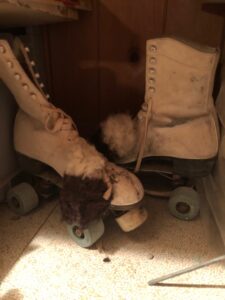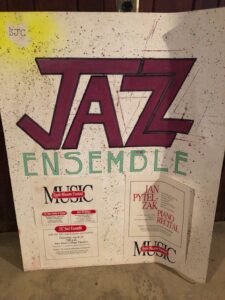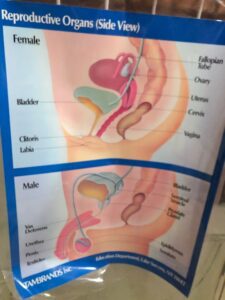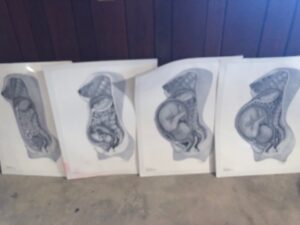Beatrix Potter’s character, Jemima Puddle-duck is one of my favorites in children’s literature. I’ve referenced her before and probably will again because I can’t get the vision out of my sight, of her waddling to and fro squawking “what to do, what to do” in a fit of indecision. This is something I can relate to.
“I don’t know.” “I can’t decide.” Or, my husband’s favorite, “I can’t make a decision about that right now,” usually followed by, “I need another cup of coffee first.” These are forms of indecision.
Is indecision related to too many options, or not enough, as in I haven’t yet seen the option that tips the scale to decision? Some people accumulate information, to maximize their options, in order to make the best choice, ultimately not having enough comparisons to feel finished.
Other people, look at a couple of options, find one that satisfies their limited criteria and stop looking. Decision made.
Sometimes I make quick and easy decisions. My yes is yes and my no is no, with rarely a maybe in sight.
In fact, I often differ from my husband with his hundred and one options looming over most decisions. Maybe I’m hasty. I’m sure I have been, but maybe he’s procrastinating.
What’s up with decision-delay? Is it fear of being wrong, making a mistake, or diving in too deep?
Are we on the cusp of making a decision when a clip or newsreel of the past turns on in our heads flashing in high speed all of the poor choices we’ve ever made, one after the other? This stuff can throw you right into a catatonic state of indecision in mid-step.
Let me supply an example. I have a dress hanging in my closet, with the tag still intact, and a pair of shoes in the rack on the door opposite it, ironically from the same store. The thing with both of these items is that I didn’t buy either of them when I first saw them. I left the store, left town in fact, arrived home and couldn’t get them out of my mind. I wanted them after the fact, a sort of opposite of buyer’s remorse.
So, after a telephone call to the store asking for them to hold the dress, the shoes, and my dignity, I drove 40 miles one way to buy them, on separate occasions, no less. The kicker is, I wore the shoes once or twice and with the tag still on the dress, well, you get it, I’ve yet to wear it. Which decision was the wrong one?
This is my newsreel when I’m feeling indecisive. I know it could be worse, a lot worse. I could have chosen the wrong husband. I didn’t, thank God. But unfortunately, many have, and I don’t even want the opportunity to be a fly on your mind’s wall as to your decision-making newsreel.
Then there are the few things I’ve thrown away, given away, sold, or donated that all of a sudden, I could use or wish I had back in my possession. My pack-rat husband too quickly gives me the “I told you so” look, which I know, but ignore.
Also, there are those folks who make such a big deal of making a decision, involving charts and white boards and pros and cons lists that the time to make the decision passes and the decision is made through indecision.
If you didn’t say yes, then no was selected for you. If it wasn’t black or white, then you got a muddled in-between, gray. If not red or white wine, then there’s blush. If you don’t like Democrat or Republican, register Independent and vote for the individual not the party. If you want to go to the party, go. If you don’t, don’t.
The simple facts are, we aren’t always going to be happy with our decisions, and will occasionally wonder what might have been, had we chosen differently. What if we had taken those jobs in Germany instead of Kentucky? Where would we be now? What if I had majored in nursing instead of psychology? What if we had moved to Iowa instead of New Mexico? What would our daughter’s life be like had we stayed in New Mexico instead of moving back “home” to Pennsylvania?
We tend to like having decisions made, with either one or the other choice settled with absolute certainty and satisfaction. But I’m thinking that the reality of life requires us to accept imperfection, uncertainty, mystery, failure, and probably a dose of chaos.
Peace with our decisions doesn’t come from achieving perfect order in our lives. It comes from failing to obtain that which we would have preferred, and learning how to live fully, even creatively, with what remains. Peace comes with surrender to what is, and reconciliation to the loss of what might have been in our expectation of an ideal world.
So, decisions decisions. I wonder if sometimes we consider decision-making like war, or an argument. One option is the winner and the other option(s) are losers.
In our American-way of competition, toward the best outcome, it’s hard to see arguments, battles, or decisions as something more like the French see, as a dance. It’s not fitting to ask who won a ballet, is it? In a dance there is no attacking, counterattacking, or defensiveness, but there is sparring.
Many of us think stereotypically of the French, that they believe some of our ways are somehow inferior or primitive compared to their own. But I think this may be a cultural misunderstanding. I wonder if maybe they just want to dance with us and we reply with an argument. We find it difficult to imagine a disagreement without a fight. They find both sides of the disagreement, a stimulating back-and-forth dance, toward enlightenment.
Sparring is a sort of dance training, or preparation for the real bout. So could arguments, battles, and decisions, be. We could consider our next decision-to-be-made, a dress rehearsal toward achieving balance, the attainment of which there is no wrong or right, but movement forward in an enjoyable dance of life.









 from my human sexuality classes that would fit right into the décor of your and my gynecologist/obstetrician’s office;
from my human sexuality classes that would fit right into the décor of your and my gynecologist/obstetrician’s office; posters from poison control used at a booth at a health fair my college committee on the environment sponsored
posters from poison control used at a booth at a health fair my college committee on the environment sponsored and a board game I created for my American Subcultures class.
and a board game I created for my American Subcultures class.